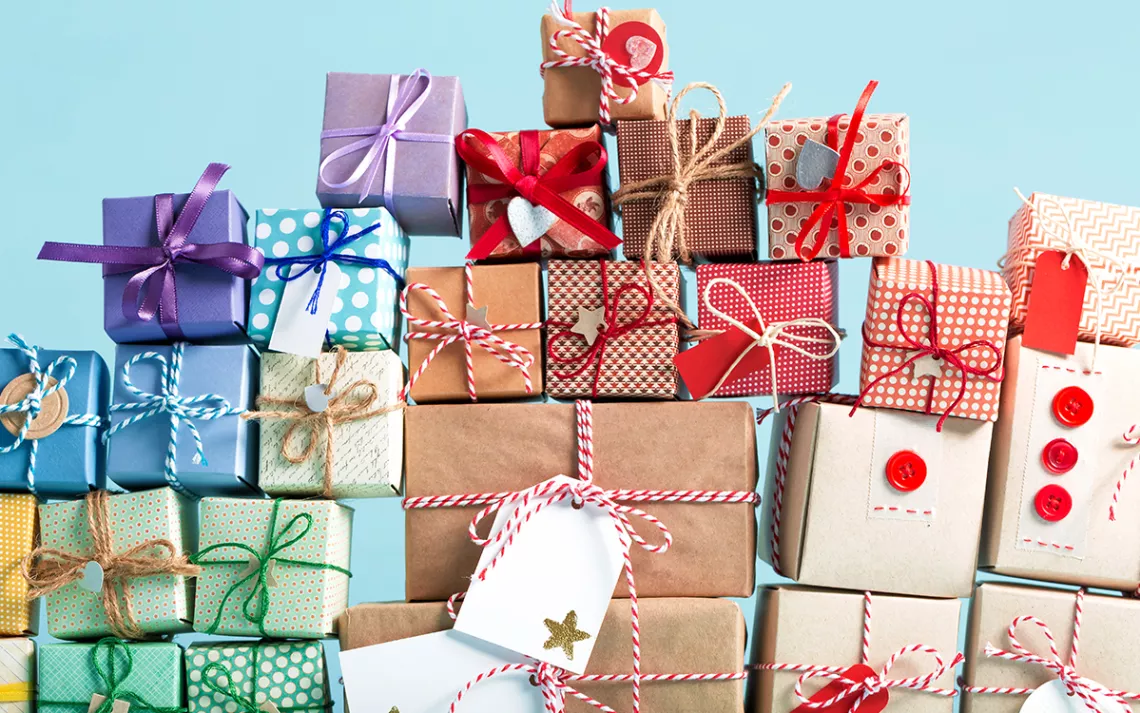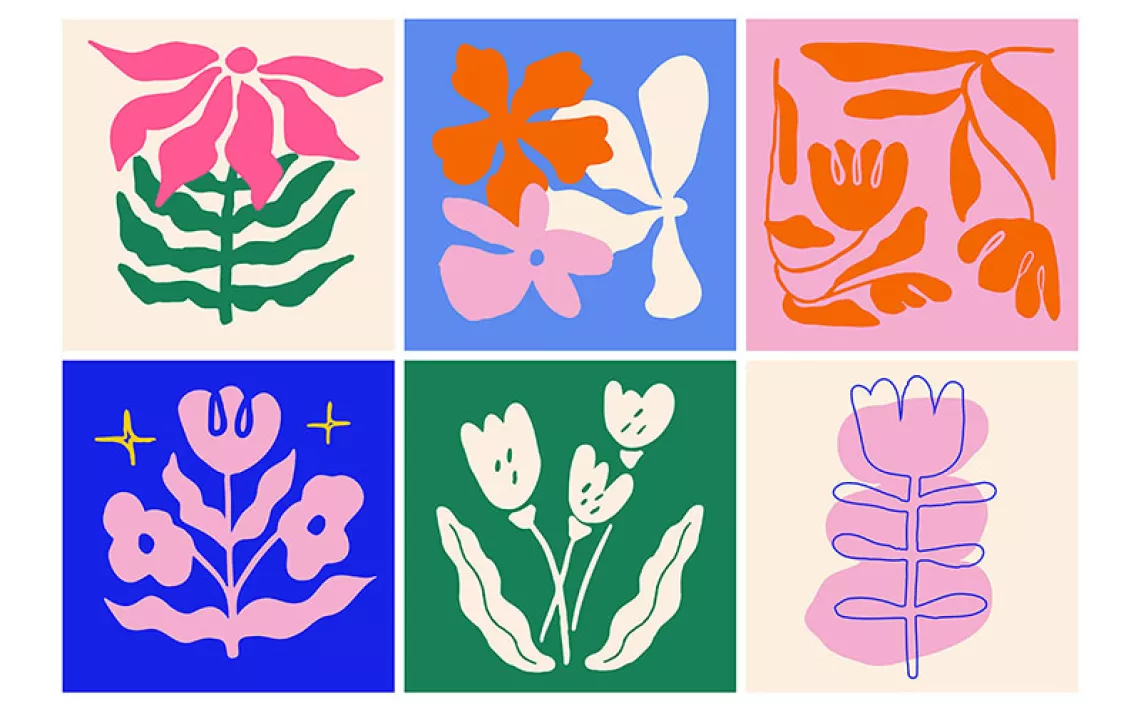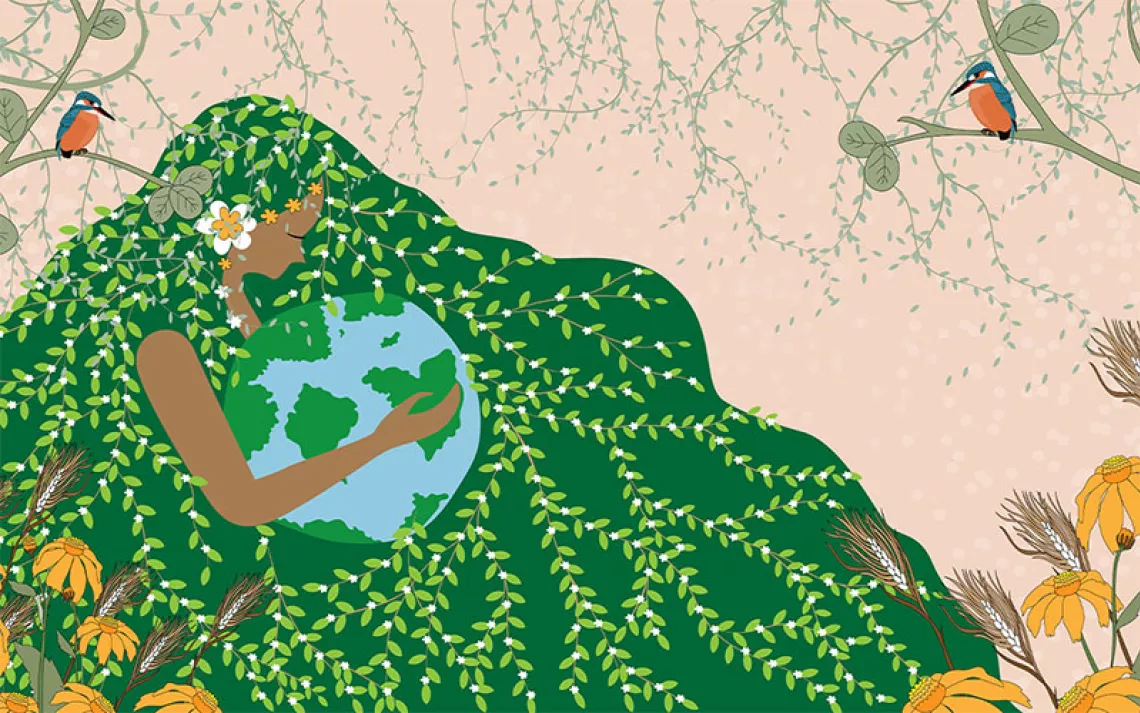Can’t We All Just Opt Out of Holiday Shopping Overload?
Let’s ditch excess stuff for a more sustainable (and less stressful) season

Collection of holiday presents on a light blue background. | Photo by
Melpomenem/iStock
Back when writer J.B. MacKinnon was a teen, his family decided Christmas as they'd known it was over. In previous years, they'd exchanged gifts like many other households did in their town of Kamloops, British Columbia. But the family was concerned about the environmental impact of all those gifts. With three growing boys at home, the whole thing had started to be more stressful than fun.
So in the late 1980s, the MacKinnons canceled Christmas—at least the hyper-commercialized, gift-oriented version. "Between adults, there's no gift giving in our family, and there hasn't been for a very long time," said MacKinnon, author of the 2021 book The Day the World Stops Shopping: How Ending Consumerism Saves the World and Ourselves (and also a Sierra contributor). The staggering amount of stuff we buy remains a central concern for MacKinnon, who cited carbon emissions, deforestation, mining, and toxic pollution as just some of the problems linked to excessive shopping. "The sheer volume of consumption is driving literally a whole world of impacts," he said.
If cutting back on holiday shopping conjures visions of a joyless, Grinchified December, MacKinnon said his experience has been precisely the opposite. "I think so many people are feeling . . . overwhelmed by stuff," he said. "I feel wonderful around the Christmas season when I'm walking around unstressed."
If "walking around unstressed" sounds like something you'd put on your holiday wish list, you're not the only one. Preliminary results from a 2022 survey by the Center for Biological Diversity (CBD) found that 90 percent of Americans wish the holidays were less materialistic, up from 78 percent in 2005. Yet for many, the season remains a frenzy of consumption. The CBD calculates that Americans generate 23 percent more waste in December than in any other month of the year.
The gap between what we do and what we really wish for has widened into a chasm. Choosing a holiday unshackled from consumerist frenzy means resisting the pull of habit, social pressures, and the seasonal onslaught of intensive marketing. Still, it’s worth making an effort to align your annual celebrations with your deeper priorities, said Meg Cox, author of The Book of New Family Traditions: How to Create Great Rituals for Holidays and Every Day.
"It's the importance of meshing your family traditions with your values," Cox said. "Those [traditions] are the ones that are going to be the most powerful anyway, whether it's your religious background, your cultural background, or you're a strong environmentalist." Cox recalled a family she knows with three young children who finally decided their eight full nights of Hanukkah gifting had become a little over the top.
"The husband and wife decided it was expensive, and it wasn't sending the right message about their values," Cox explained. Rather than opting out of presents entirely, the family swapped some nights of Hanukkah gifting for bowling and movie outings. They reserved one night for the Jewish tradition of tzedakah, seen by many as an ethical obligation to help those with less. "The family has money set aside for charity," Cox said. "What they do is decide as a family who is going to get that money they saved up."
If you're looking to cut back on gift giving, openness is vital, Cox said, noting that even with younger kids an honest conversation goes a long way. Share what you’re thinking and why it matters to you. For families of all sorts, dialing back on gifting can be an opportunity to create fresh and meaningful experiences together. You might be surprised how quickly a new habit can feel like tradition, Cox explained. "There are some things that become immediate traditions because people have so much fun with them," she said. "We're all wired for repetition and pattern and joy."
What do the holidays look like with fewer gift-wrapped boxes? They can still be bright, said Kelley Dennings, who leads the CBD’s Simplify the Holidays project. "It isn't really stuff that makes us happy. Once our physiological needs are met, like food and shelter, the way to life satisfaction is through personal growth, relationships, community involvement," she said, adding that these can serve as guideposts in establishing more sustainable holiday traditions. That might mean shared volunteering projects or making quality time the top priority. When it comes to gifts, prioritize giving "experiences"—tickets to a play or sporting event, for example, or national or state park passes, museum memberships, and online classes—in place of "stuff."
"The research shows that people really remember experiential gifts," Dennings said. A variation on the experiential gift is a skill-share—no credit card necessary. Try teaching a friend or family member a favorite recipe, or bust out your next-level manicure skills and give a tutorial. Dennings noted that sharing outdoorsy skills merges interpersonal connection with the benefits of time spent together in the natural world. You might teach a loved one to build a campfire, for example, take them birdwatching, or go mushroom foraging.
If you're serious about dialing back the gift overload, swapping in experiences won’t be a one-to-one trade. Stepping out of the consumerist mainstream, in the end, means choosing less. This can be a delicate process that's worth starting early, Dennings said—don’t wait for an awkward conversation across the Thanksgiving table.
And you don't have to go cold turkey on consumer culture. Families might draw names or transition to a one-gift-per-person rule, reducing the total number of gifts. Dennings, who wrote her master's thesis on more sustainable gifting, said that in some households transforming holiday habits can be a yearslong, ongoing process. "We still do not do it on both sides of my family as a standard thing," she said.
"If you can get somebody to give you one [non-stuff] alternative out of, say, three gifts they get you, that is huge," Dennings said. "I would say starting small is great."
 The Magazine of The Sierra Club
The Magazine of The Sierra Club



